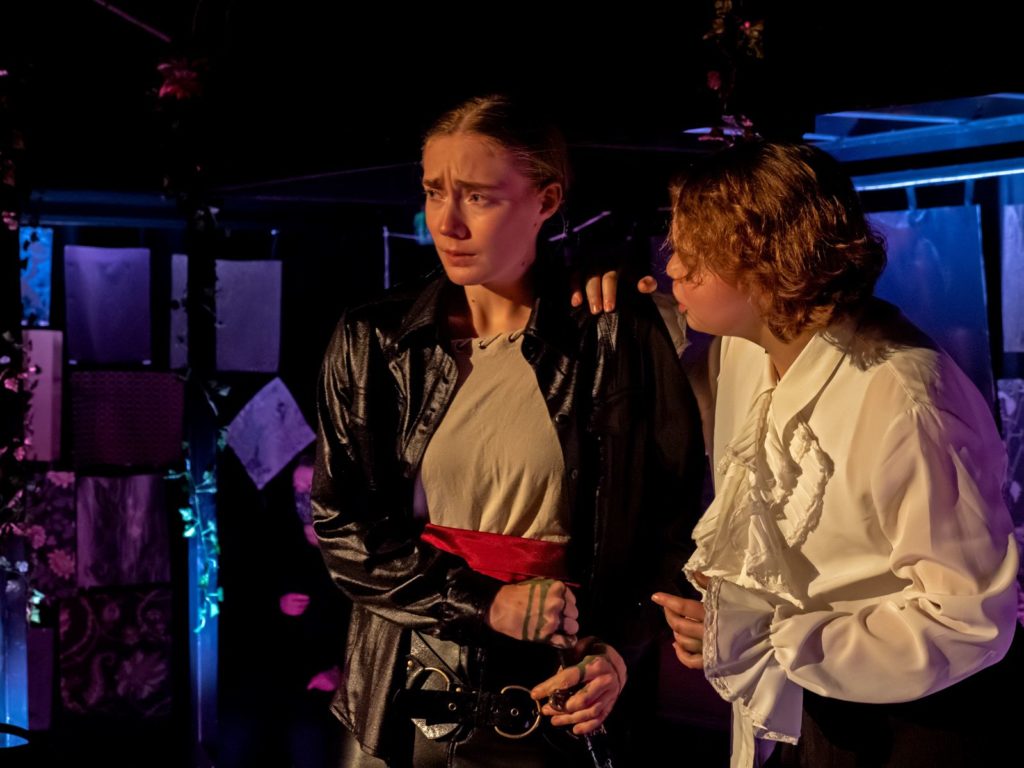
York Shakespeare Project in Macbeth, Theatre@41, Monkgate, York, until Saturday, 7.30pm plus 2.30pm Saturday matinee; all sold out. Box office: tickets.41monkgate.co.uk.
SOMETHING wicked this way comes…eventually, delayed from March 2020 by lockdowns, rather than the notorious Macbeth curse per se.
Leo Doulton, “sometimes director, sometimes writer, repentant historian”, as his Twitter feed puts it, has persisted with his original vision of a “cyberpunk” Macbeth.
Eight cast members remain from the original unlucky-for-some 13, stopped in their tracks a week away from opening night last year; three have changed roles; five new additions have come on board, most notably Nell Frampton taking over from Amanda Dales as The Lady.
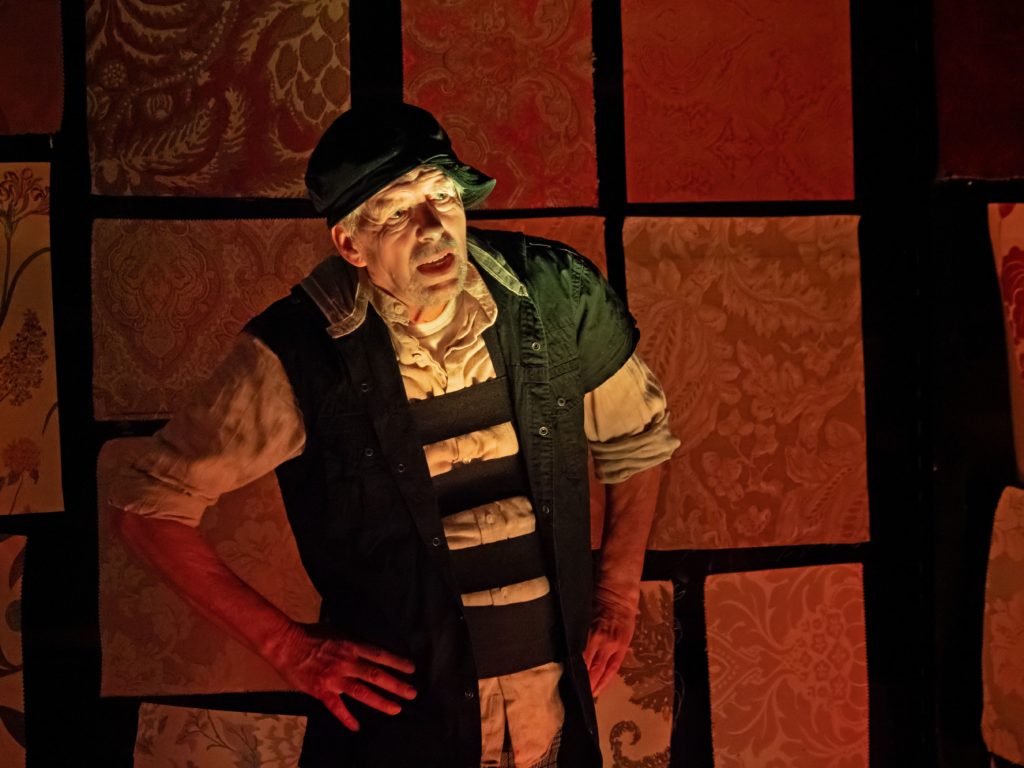
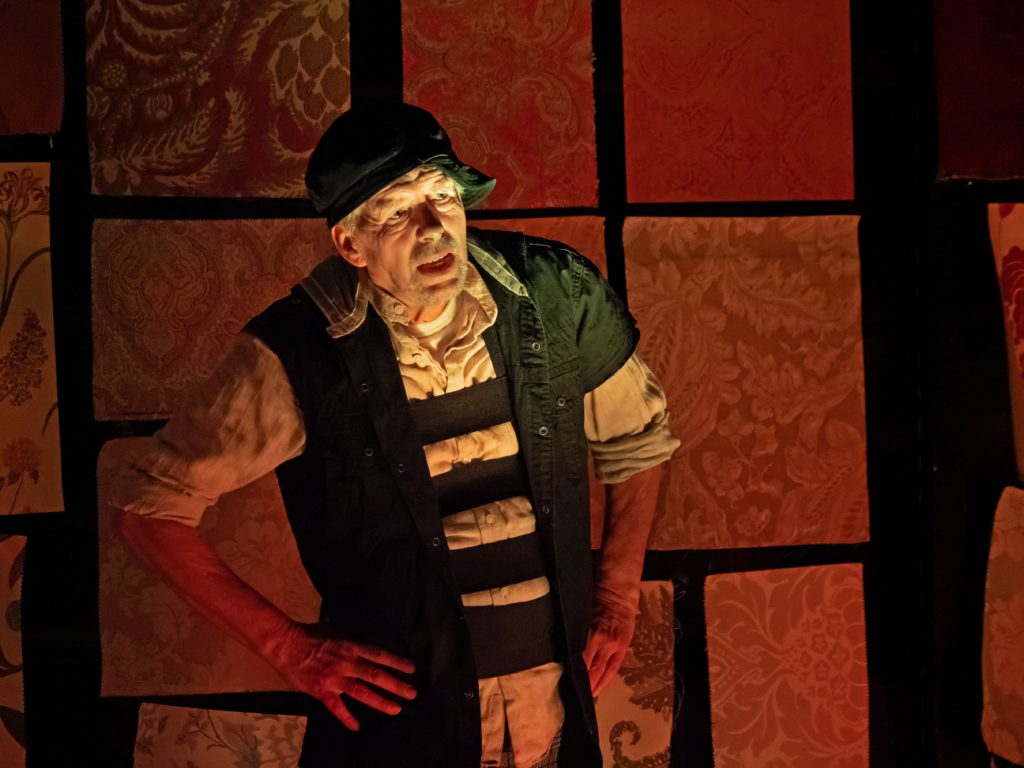 Frank Brogan’s Macduff. Picture: John Saunders
Frank Brogan’s Macduff. Picture: John SaundersCrucially, however, Emma Scott’s Macbeth is still leading Doulton’s company, hurled into a dystopian, dizzying future as Doulton and his set and costume designer, Charley Ipsen, slice up Shakespeare’s dark, dreak tale of vaulting ambition, multiple murders and supernatural forces in new ways.
First of all, this is a shortened Macbeth, with no interval, no tedious, unfunny Porter scene, done and dusted in under two hours. Everything, everyone, is in a hurry; not once does Scott’s Macbeth sit down; nor do the guests at the dinner ruined for Macbeth by the ghost of Banquo (Clive Lyons). Instead, they stand, dotted around the perimeter of the John Cooper Studio’s rectangular black-box design.
Frampton’s The Lady is in a rush too, so much so, they trample loudly through several lines as they move around the fringes, imparting instructions in noisy boots. Tony Froud’s Ross and Frank Brogan’s gruff Yorkshireman Macduff are restless too, delivering a line, moving, delivering another, moving on again.
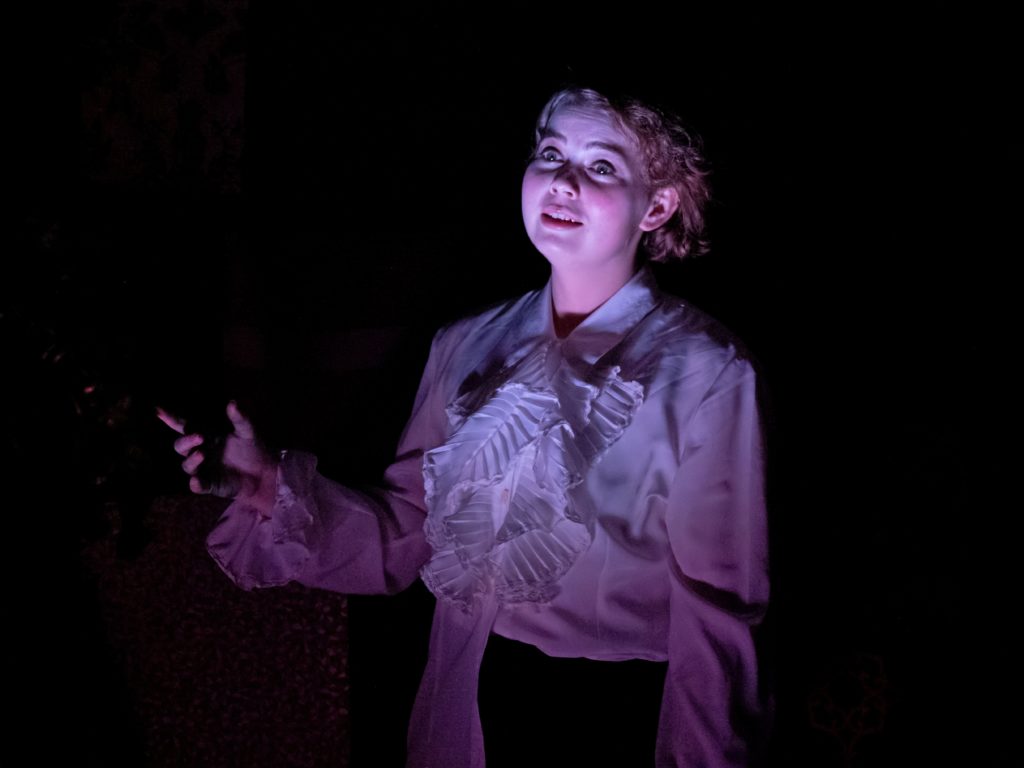
This sense of impermanence is deliberate, and maybe that is one reason why the walls are lined to the brim with swatches of wallpaper, rather than full rolls. Equally, this dissonant imagery is part of the cyberpunk mood board, just as the dried leaves around the ramps evoke Macbeth’s stultifying impact on nature’s course.
Doulton has responded to the pandemic, he says, by emphasising the uncertainty of the play’s inhabitants. “None of them, except perhaps the Witches, knows what’s going on,” he reasons. Hence a production that never stops moving in “an ever-changing world of illusory realities”.
In effect, all the world’s a stage here. The audience is seated around four ramps with a central dais that may or may not signify the Stone of Scone (but is not made of stone). Rarely is centre stage used as centre stage, except by the rightful king, Duncan (Elizabeth Elsworth).
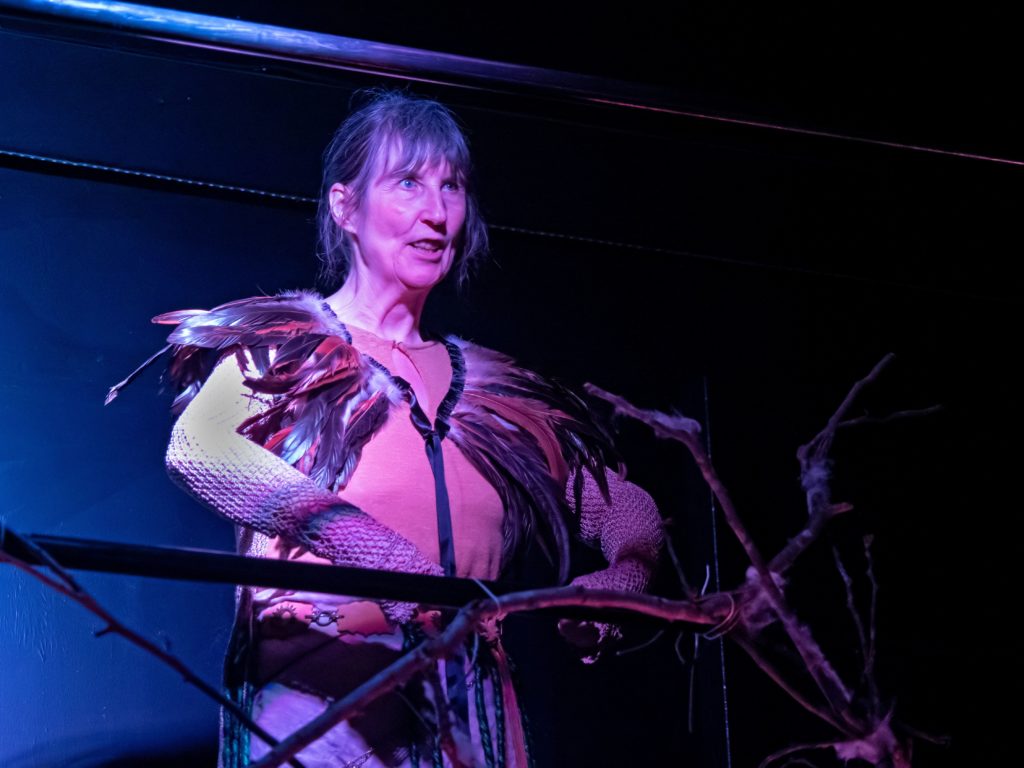
Scott’s Macbeth will as likely deliver a soliloquy from the up-lit recesses as from the epicentre; Frampton’s The Lady plots from the shadows; likewise, the discussions of Rhiannon Griffiths’s strategist Malcolm and Brogan’s exhausted Macduff are framed by the walls.
As for the spectral weird sisters, those midnight hags, the three Witches (Joy Warner, Diane Wyatt and Xandra Logan), they hover amid the parched twigs and branches on the mezzanine level, Macbeth never in touching distance, and they disappear from view as quickly as they enter.
The implication is that the once “worthy” Macbeth and The Lady know they will not be king and queen for the long haul, once their knives are out, hence that centre stage is so often barren.

On the one hand, this is an audacious directorial move by Doulton, but, on the other, you will likely have to move your head and body position more often than a learner driver negotiating that all-important three-point turn in their test but for much longer. The stage configuration is not the same as a theatre-in-the-round, where you become accustomed to not being able to see a face at all times. You may decide, on occasion, to sit and listen, rather than turning round.
In his interview, Doulton made the interesting point that Macbeth is not all about death, death, more death and the fear of death, although he did note: “It would be impossible to present Macbeth in the same way as when we started work on it before the pandemic. We’ve moved from a world where we fear quite specific things to one where we fear more pervasive, invisible ones, such as the pandemic and the climate crisis.”
Naming uncertainty, innocence and corruption’s constant presence as the themes and motifs that stood out in our new times, he suggested Shakespeare’s tragedy is “more concerned with the art of being human while alive and mortal: how to act, what legacy we’ll have, and how to understand a world far larger than us. Its deaths are from violence and the supernatural, not disease.”
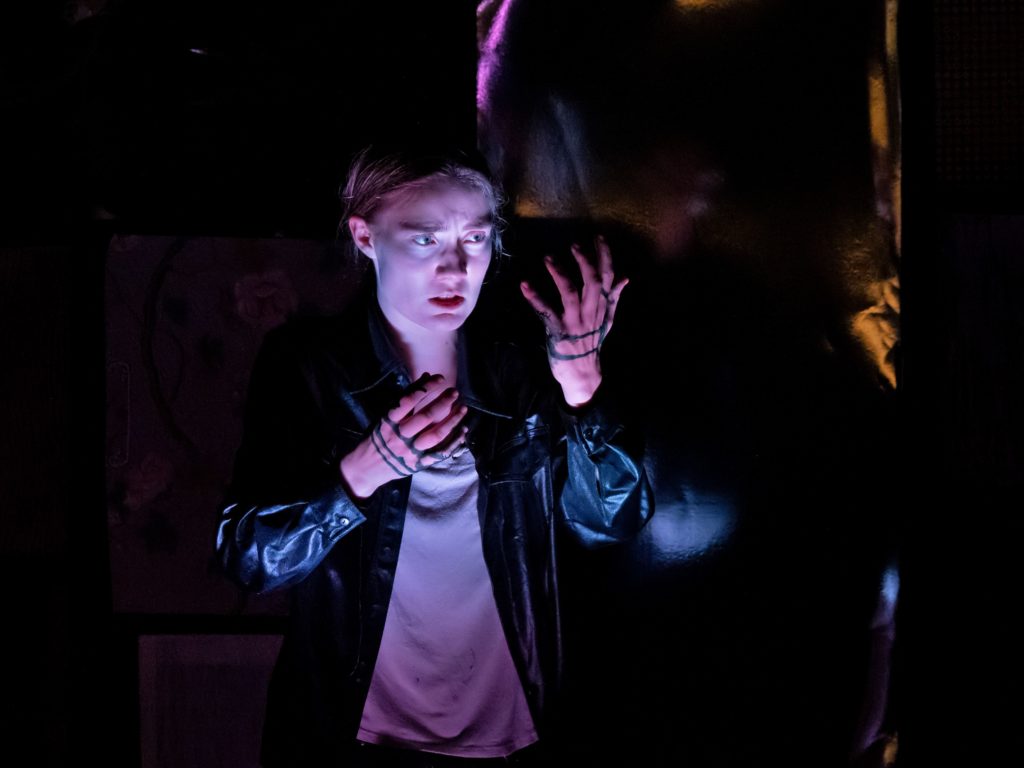
In other words, this is not a Covid-clouded Macbeth, but one that in the absence of moral certainty and leadership, fears a longer damaging legacy, not least the impact of climate change, when there may no longer be trees to move from Birnam Wood to Dunsinane.
Nevertheless, Doulton and Ipsen have fun with the cyberpunk setting, serving up blue drinks, having blue rather than red blood, and staging the fight scenes in a stylised, no-contact manner, while Neil Wood’s menacing lighting captures both light and shade.
As for Scott’s Macbeth: at times, she is as much Hamlet as Macbeth, young, poetic, burdened; more worrier than warrior.
Review by Charles Hutchinson
